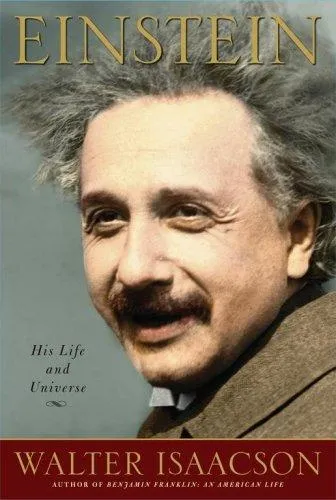1
mention
mention

This was my second read of an Einstein biography, this time by Isaacson. Coming from Isaacson, the book is well-written and seemed very thoroughly researched. Overall a great read, but if I had to complain my biggest issue is that the emphasis was not allocated very well. For instance, a huge portion of the book is devoted to Einstein’s personal life, reading through his correspondence with his love interests. It’s interesting for a while, but after some point I thought we were intruding a little too much, and that it was stretched out and uninformative. Conversely, some very interesting portions of his life are under-represented. In one chapter he publishes his streak of 1905 papers, and in what feels like a few pages later he is a scientific celebrity. This period, where the community is discovering and processing him as a person from nowhere who made sudden and large contributions is among the most interesting, and very sparsely covered. There could have also been much more space for his works’ retrospectives - how do scientists today see his theories, in what ways was he right or wrong based on our current understanding of physics? This book was written in 2007 but so few of these interesting retrospectives are present that it may have as well been published in 1955. I thought this was a huge missed opportunity. A few more fun parts of the book I enjoyed: - Einstein did not describe himself as atheist and in fact frowned on them. Instead, he subscribed to something similar to Spinoza’s god - an abstract, pantheistic, impersonal god. I think I mostly self-identified as an atheist until now but I’ve been swayed to Einstein’s view by this book, as it was nicely presented by Walter Isaacson with help of original texts by Einstein. - Einstein strongly disliked nationalism, and thought of himself as a citizen of the world. An interesting view, expanded on nicely in the book. - I liked the anecdotes surrounding Einstein’s Nobel prize. Most people felt strongly that he should get one, but the situation was more politically charged than may seem at a first glance. In the end, Einstein received the Nobel for photoelectric effect, not for his much more impactful theory of general relativity. - The book goes into quite a lot of detail on how Einstein was rejected by almost every single academic institution prior to his 1905 papers. Luckily, it turns out that a patent office is not a bad place for an academic tenure. - The book goes into quite a bit of fun details about the massive Einstein hysteria in the public. A scientific celebrity of that scale is quite singular in our history - it was relatively unprecedented back then, and we also haven’t seen quite the same phenomenon since. I wish we did. - It was also fun to think about Einstein’s stubborn refusal to accept Quantum Mechanics despite mounting evidence throughout his life (“He does not play dice”). The irony is that many established senior scientists were on the defense of the old order when Einstein first formulated GR, and now here he was much later (as an established senior scientist) stubbornly defending the old order in face of attacks from QM. This irony was not lost on Einstein at all either, but he still refused to correct for this persistently observed bias across history. As a scientist, I hereby resolve to overcompensate in accepting new paradigms once I’m older :) I developed a new appreciation for Einstein after reading the book, and there were plenty of fun parts and anecdotes that made this quite worth the read. 4/5
— Andrej Karpathy
2015-12-28 on goodreads.com